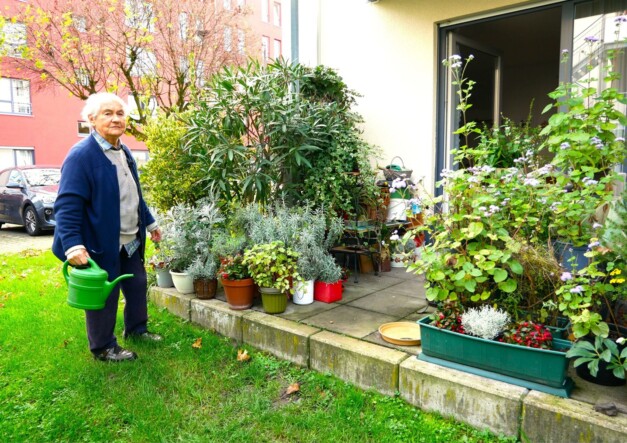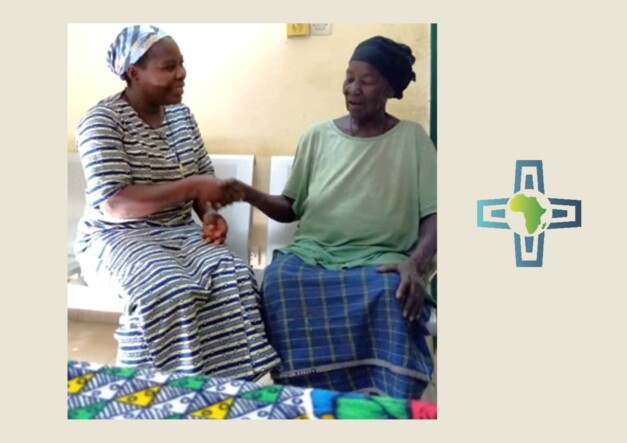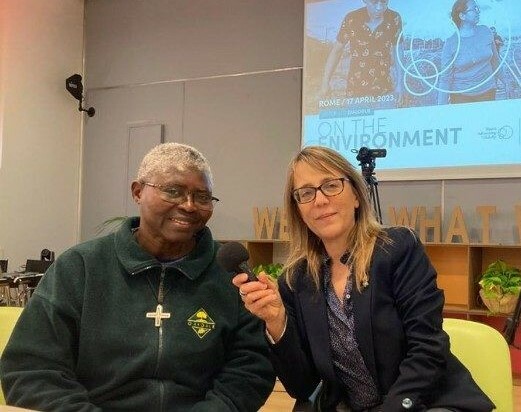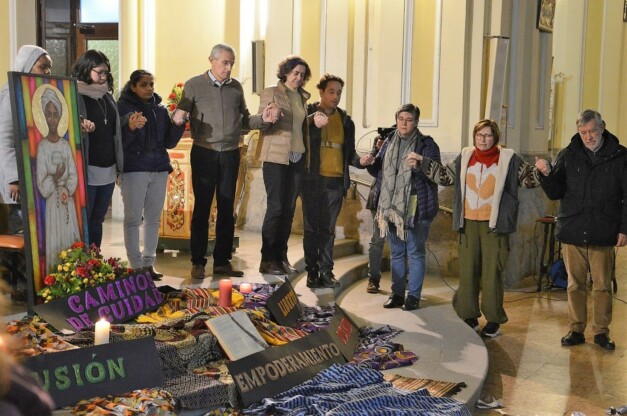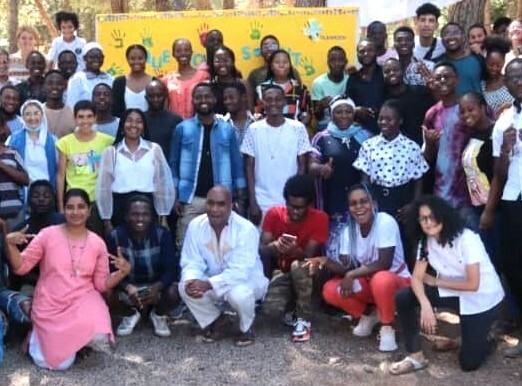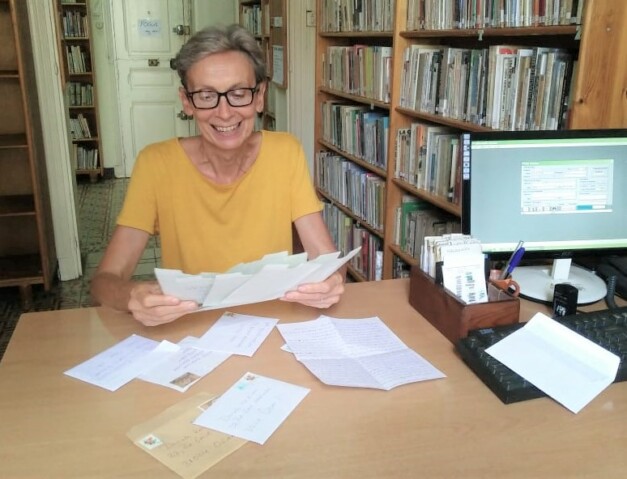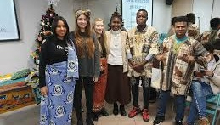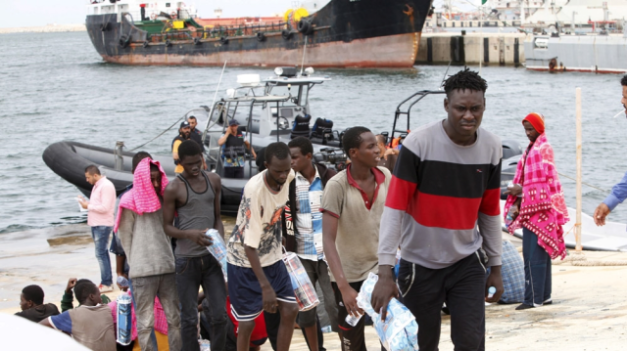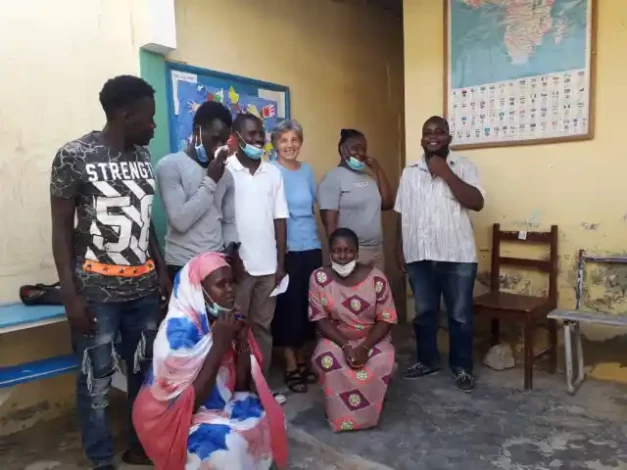There is desert and desert!
From our sister Clementine Mukampabuka There is the desert I visited for the first time in 2004 in Ghardaïa and El Golea and where I sang the hymn of creation; where I met Blessed Charles de Foucauld; where I met Jesus of Bethlehem, Nazareth and Galilee through the presence of our sisters and brothers on mission there! There is another desert, the one where I meet my brothers and sisters detained in the different places of incarceration here in Algeria. They are truly in a desert which deprives them of certain freedoms including that of going where they want, of seeing who they want. In this desert, the angels who feed them are the authorities of the penitentiary establishments and we who share the Word of God with them. We print it and leave it with them as an appointment for the week. These moments of prayer in prison…
Journey towards Integral Ecology
Sr Lucy in her garden Our older sisters in Germany show us the way towards Integral Ecology The Cologne-Klettenberg community continues to take small steps in our journey towards integral ecology: wasting neither water nor energy, for example, using the elevator with several people whenever possible, avoiding plastic waste, choosing meat-free menus, planting flowers that are useful for bees, collecting cigarette butts to protect the groundwater etc. As Jesus taught us, we believe in the power of small things. Although almost all of us are in our 80s and 90s, we can still take a few steps in the congregation’s journey towards Integral Ecology. Behind our house lies a small garden where we admire flowers and fruit trees all year round. Those of us with balconies create our own tiny gardens and we give preference to flowers that attract bees and other insects. Plates filled with water or seeds…
JPIC in daily life at the Delwende Centre
From our sister Vickness N. Muleya, community of St. Julien, in Ouagadougou, Burkina Faso Social exclusion due to allegations of witchcraft is violence against women, and the phenomenon is still rife, especially on the Mossi plateau. More than five hundred women are dispersed across the Mossi Plateau in shelters or precarious homes in insecure areas, because they are accused of being “soul eaters”. The women arrive stripped of all their possessions and dignity, beaten, wounded, their homes burnt down, and forbidden to see their children and families. Many die on the road, while others attempt suicide. These are common occurrences, and many victims die tragically without any help. In general, it’s the elderly, and particularly women, who are the first to take the blame when death or other dramatic events occur in a family. At present at the Centre Delwende, we have 178 residents, including 7 men; 70%…
Ministry of JPIC
From our sister Maamalifar Poreuku, Executive Co-Secretary of the JPIC Commission USG-UISG My vocation is a childhood dream come true. Around the age of 6, some sisters called “mooda pele” often visited our village and my family. Mooda pele means “White Mothers”. I was so captivated by the name and their activities in the village that I wanted to be like them. This was what motivated me to want to go to school. When I reached the age of reason and went to school, I did not see them anymore, so I thought they had left the country. I met other congregations, but did not feel attracted to them. After completing my secondary education, not knowing if the mooda pele were still in Ghana and not being attracted to any other congregation, I thought my dream to become a white mother was an illusion. So, thinking of other plans,…
Celebration of St Bakhita in Madrid 2023
The Vigil of St Bakhita in Madrid organized by the Diocesan Commission against Human Trafficking of which Begoña Iñarra is the coordinator, is celebrated every year in a different parish, to create awareness in the different parts of the town about human trafficking. This year it was celebrated in St Cayetano parish, in the heart of the traditional and well-known Rastro (flea market) district of Madrid. There were about 100 people and many people all over Spain and Latin America followed the video in streaming. The members of the Human trafficking commission animated the vigil written by one of the members. The social vicar of Madrid Archdiocese introduced the vigil that was very symbolic. A beautiful image of Ste Bakhita was before the altar. Four people put up five posters with the words “Freedom” “Dignity”, “Caring Paths”, “Inclusion” and “Empowerment”, at St. Bakhita’s feet. All along the prayer, we…
Unity is possible
On August 14, I took the road around 6:00 p.m. to go to Oran to participate in the week-long Taizé Tlemcen session. I arrived in Oran late at night to continue to Tlemcen in the morning. I was well received by our sisters in the community of Oran. On August 15, I went to Tlemcen with Sr. Jeanne d’Arc, Sr. Clémentine and a friend of our Sisters from the community of Oran. It was a great joy for me to be with them. We arrived in Tlemcen at noon and joined the others for the Eucharistic celebration. It was a beautiful celebration animated by good songs in different languages. It was only a beginning and an opening of joy that accompanied us throughout the week by deepening the life of Taizé. We were about 70 in number. They were students, monks, nuns and a couple with their 3 children. We…
Prison Ministry. Oran, Algeria
This pandemic has forced us to change habits and patterns and made us discover new ways of carrying out our apostolate. Here in Oran, Algeria, we used to go to the prison in pairs (with a priest) once a week to meet between 25-38 men. The prisoners are almost all sub-Saharan (majority Cameroonians). Most have no other visits and no links with the outside since their arrest. During the visit I try to listen to each one. When I get home I contact their relatives, their partners, friends in Algeria and then by Facebook their families and friends living elsewhere. It is an extremely emotional and spiritual apostolate because we are journeying together and we are able to form a family that meets once a week around the Word of God. Due to the health crisis, the country’s authorities suspended visits to prisoners, but during the last few months,…
The Lublin community in Poland and JPIC-ED
Visiting the prison Once a month, Anafrida Biro goes to the prison to accompany the prisoners and pray with them. The prisoners who need someone to talk to wait for her with joy. With the homeless Once a week Ania helps at the Volunteer Center, where a warm meal is given to the homeless, former prisoners and people who are in a difficult situation. On human trafficking We invited a policeman working in the human trafficking department to tell us about human trafficking in our region. It was good because there are few reports on the issue. Ania Wójcik has participated in a training workshop on « Evangelization- street safety rules, dealing with conflict situations » organized by the Bakhita network in Katowice. Migrants and encounter of religions and cultures During one of the Missionary Saturdays meeting for young girls, Anafrida invited 2 Muslim African students of the Maria Curie-Skłodowska University, to…
Migrants in Hydra, Algers
Sr Valérie participated in the Zoom meeting on sisters’ commitment against human trafficking. It was an enriching experience. She summarized it for the other sisters at the weekly community meeting. This opened up a long discussion on the local situations here in Algeria. We mentioned the situation of some former residents of the Dar Essalem Center, for the most vulnerable migrants, where Sr Hortensia Sizalande is in charge and the “reappearance” of migrants from Niger. In recent months, we have witnessed many scenes of begging in the streets. They are women, teenagers, old men and especially young children reaching out to passers-by and drivers. It’s really pitiful! Where do these people come from, knowing that the borders are closed? Were they there before containment? Where do they stay? We have many questions. We feel powerless in the face of this situation: ignorance of the language (Hausa), painful experiences of expulsion…
The dangers of migration
Mr. Moustapha Dia, a Senegalese, taught at the Diam Ly school where Sr. Victorine Bulangalire works. He was the eldest leader of the Maison du Quartier, and my close collaborator. He left for the Canary Islands, by boat. We have learned that he has died. According to one of his friends who was travelling with him, Moustapha died on the 3rd day of the trip. The boat lost its way and was adrift for 12 days when it was found and rescued by the Canary Islands Red Cross (Spain) who took care of the survivors. But several migrants had already died from lack of water and food or from the heat. Moustapha’s body, like that of the other castaways, was returned to the sea. It was on 17th September that we received the news of his death. The children of the Maison du Quartier wrote messages and drew pictures in tribute to…



